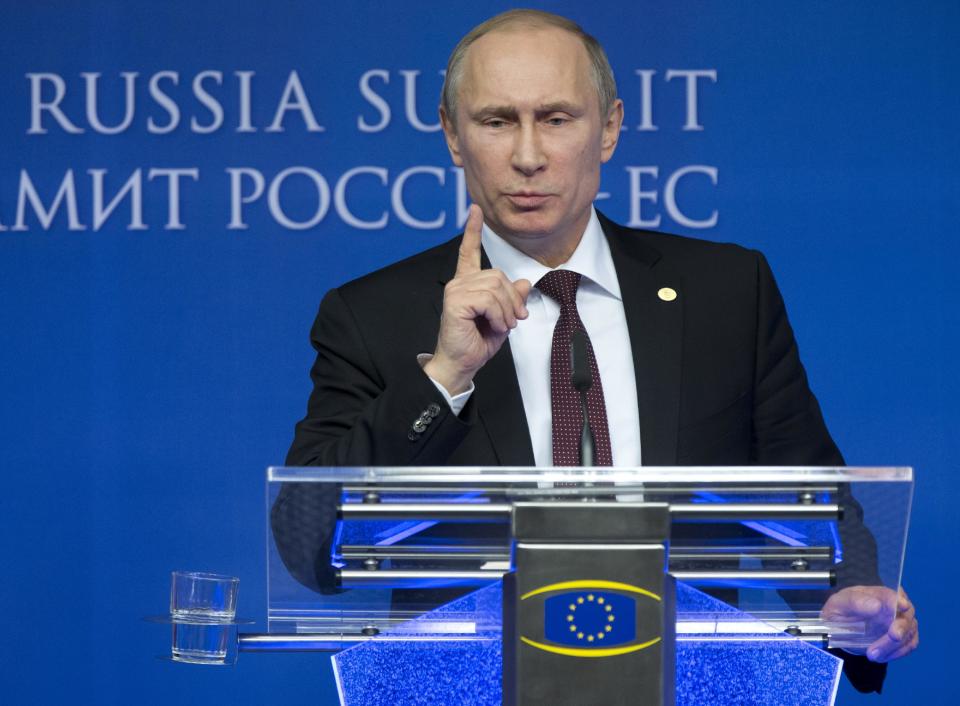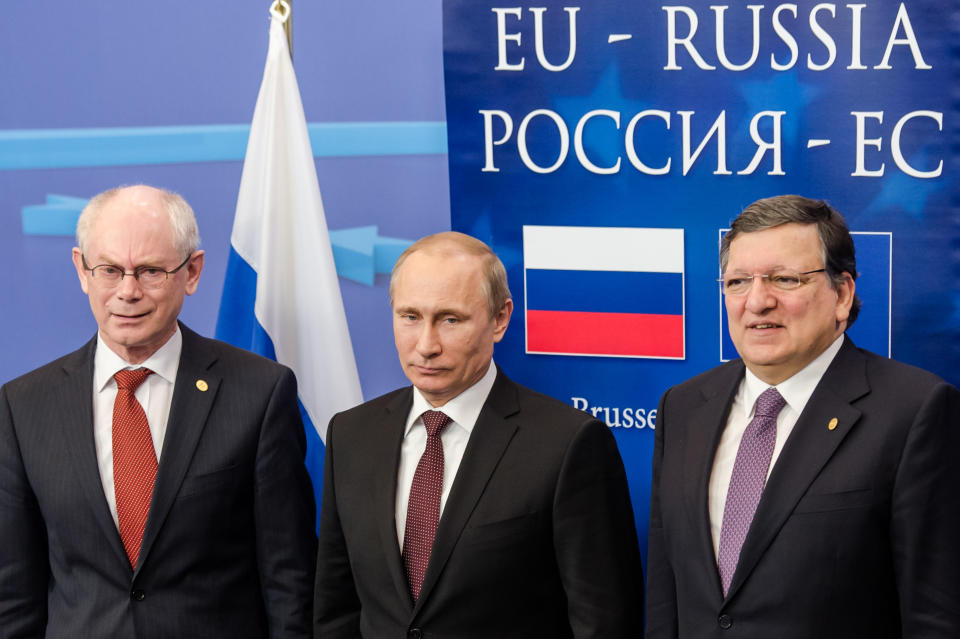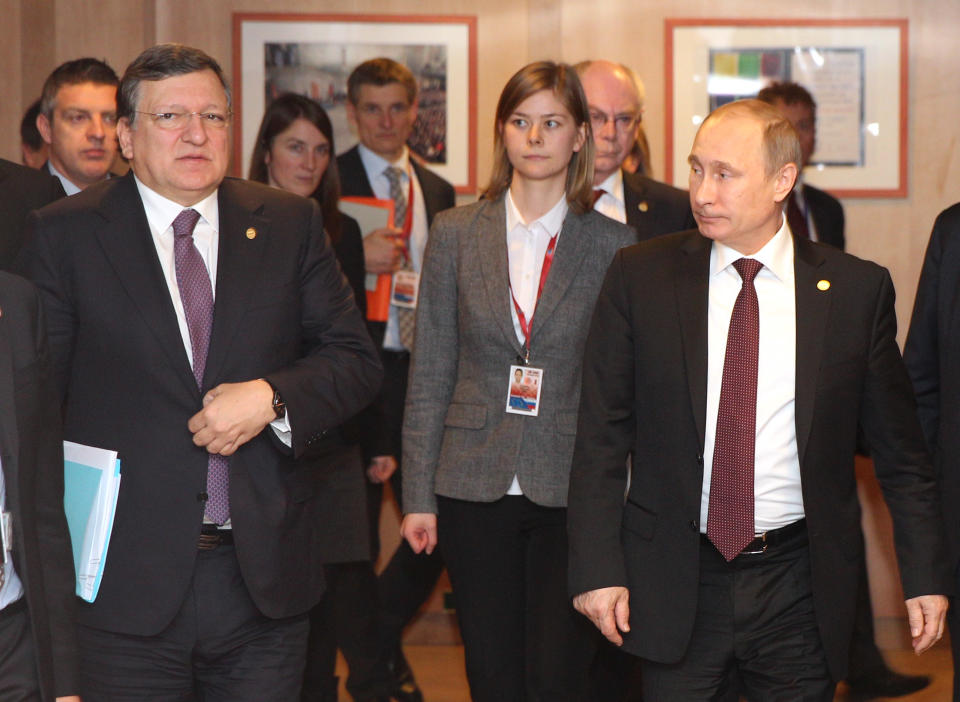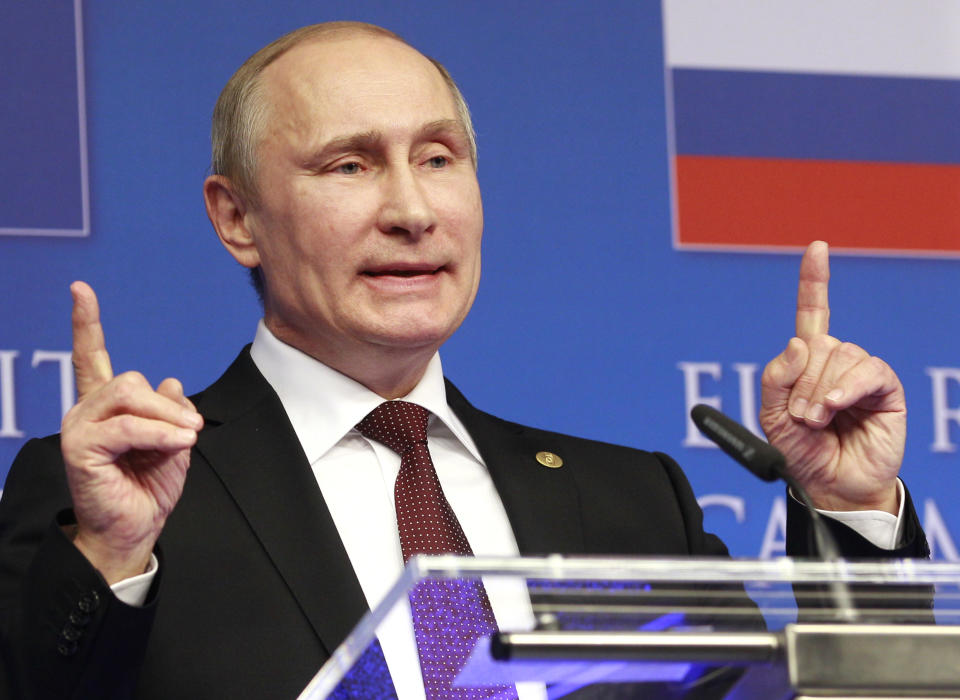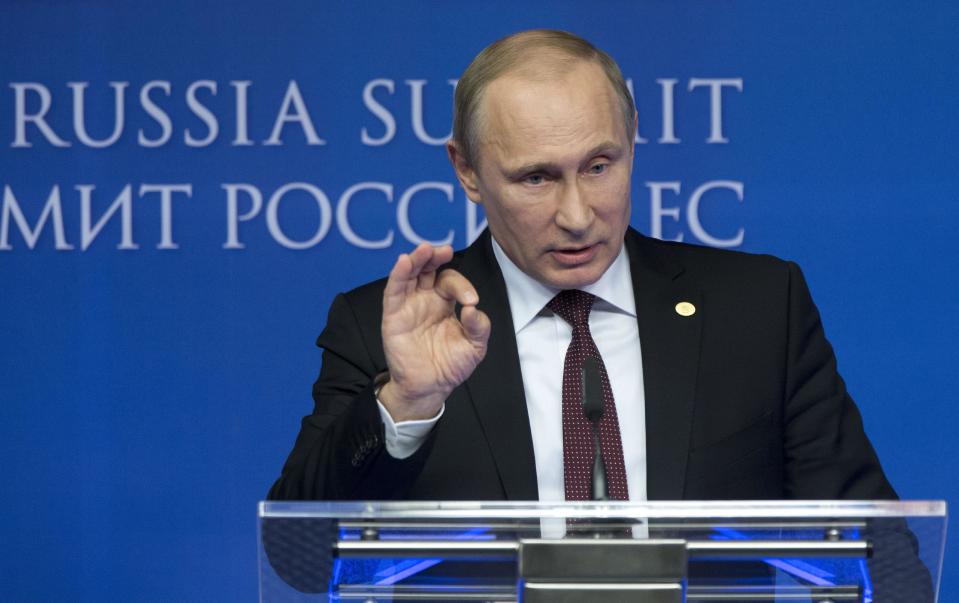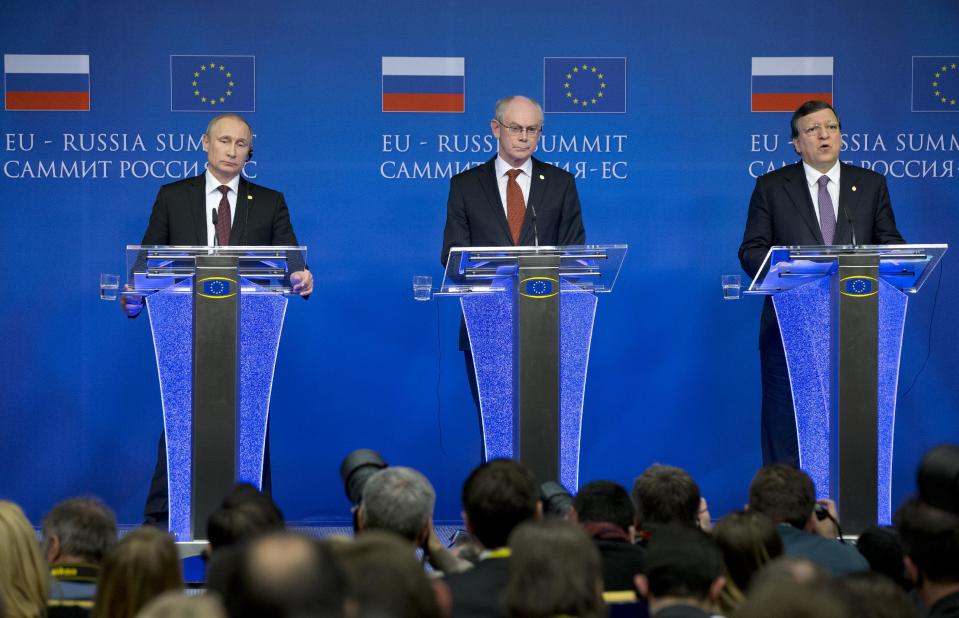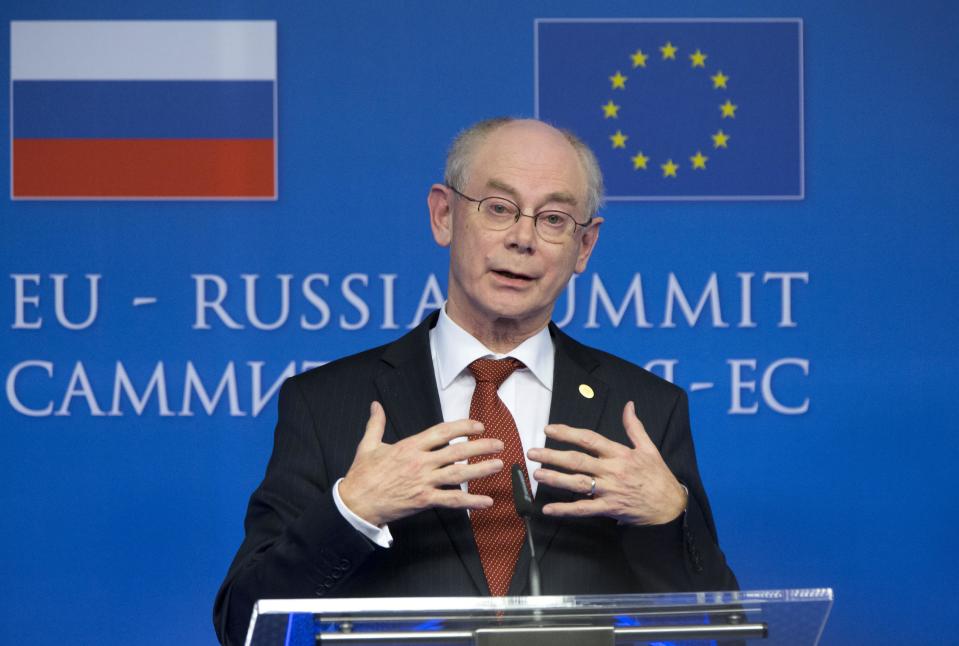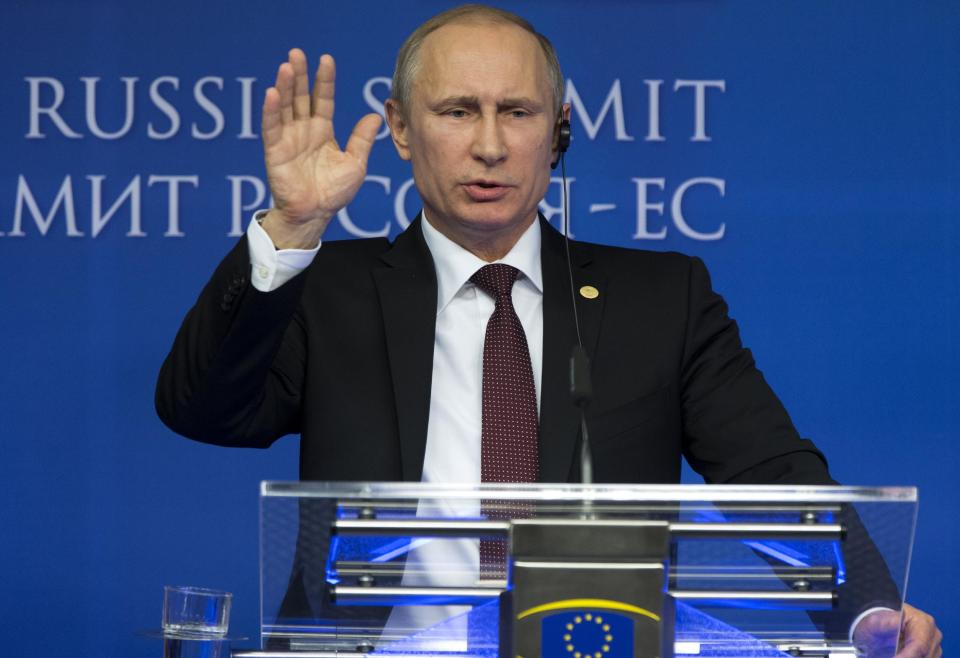Putin criticizes EU's diplomacy in Ukraine
BRUSSELS (AP) — Russian President Vladimir Putin criticized the European Union on Tuesday for sending high-level delegations to Ukraine during its anti-government protests, saying that could be interpreted as political interference.
Speaking at the conclusion of an EU-Russia summit in Brussels, he said: "I can imagine the reaction of our European partners if, in the midst of a crisis in Greece or any other country, our foreign minister would come to an anti-European rally and would urge people to do something."
"The more intermediaries there are, the more problems there are," said Putin. "Considering the specifics of relations between Russia and Ukraine, it is simply unacceptable."
The EU has sent a procession of senior officials, including Catherine Ashton, the European Union's foreign policy chief, to meet with government and opposition leaders in Ukraine, a former Soviet republic. Ashton had been scheduled to visit Kiev again later this week, but she decided to fly to Ukraine on Tuesday.
Putin said the EU has been too soft on Ukraine's opposition, claiming some of its members have used racist and xenophobic arguments to win popular support.
During Tuesday's one-day summit, Putin met with European Council President Herman Van Rompuy and European Commission President Jose Manuel Barroso. The summit had been scheduled to last for two days, but it was cut short by mutual agreement.
At a news conference afterward, both sides acknowledged their wide-ranging differences over the unrest in Ukraine following the country's decision in December to turn toward Russia for a bailout loan instead of signing a deal with the EU. Ukrainian President Viktor Yanukovych's decision set off the widespread and sometimes violent protests there, and the EU has harshly criticized Russia, saying it had used threats to keep Ukraine in its grip.
In Kiev on Tuesday, Ukrainian Prime Minister Mykola Azarov resigned and parliament repealed anti-protest laws that had set off the demonstrations, significant concessions to the opposition's objections to Yanukovych's decision regarding the EU.
In Brussels, Putin said Moscow will fulfill its economic commitments to Ukraine, even if the country's entire leadership were to change and align itself closer to the EU. He said his main concern in Ukraine is to protect Russia's financial commitments, not geopolitical issues regarding its future.
He said Russia will abide by the agreement providing credits and cheaper gas to Ukraine — a deal worth $15 billion — even if its government is led by the EU-leaning opposition.
"Will we revise our agreements on credits and energy if the opposition comes to power? No we won't," Putin said. "This is not a taboo subject to us. We will talk to any government in Ukraine," Putin told reporters.
He had once promoted closer ties between Russia and the EU, but the dispute over Ukraine has cooled their relations.
Putin said Ukraine has gas debts dating back to August totaling $2.7 billion and has asked to delay the payments, adding that he only learned on Tuesday that Ukraine has asked to put off payments, even for gas delivered this year at the lower price.
Ukraine is struggling through an economic downturn and its heavy industry in the east is dependent on natural gas supplies from Russia.
Russia had refused to offer better terms as long as Ukraine was turning its back on Moscow and seeking closer ties with the EU. The EU has insisted that Russia has used financial incentives and undue pressure to turn Ukraine away from Europe.
However, both sides agreed to assess how to cooperate better in the future, especially on how to dovetail the competing economic incentives offered to eastern European nations.
"There is an urgent need to check our watches to bring our experts together and review the misunderstandings," Putin said.
___
Juergen Baetz from Brussels and Lynn Berry from Moscow contributed to this story.

